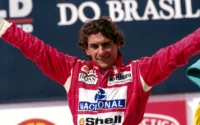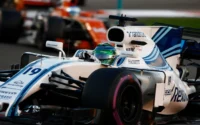Niki was an Austrian Formula One driver, motorsport executive, and aviation entrepreneur, but best known for winning three Formula One World Drivers’ Championship titles. He is the only driver to have won the World Championship with both Ferrari and McLaren, and—at the time of his retirement—held the record for the most podium finishes (54). Lauda’s career spanned two periods, from 1971 to 1979 and 1982 to 1985.
| Nationality | Austrian |
|---|---|
| Born | Andreas Nikolaus Lauda 22 February 1949 Vienna, Austria |
| Died | 20 May 2019 (aged 70) Zürich, Switzerland |
Lauda’s early career in motorsport began with karting, followed by privateer racing and a move to Formula Vee. However, his career trajectory stalled in the late 1960s, prompting Lauda to take a £30,000 bank loan to secure a place in European Formula Two with the March team in 1971, which landed Lauda his F1 debut with the team at the 1971 Austrian Grand Prix. In 1972, he was promoted to a full-time seat with the team. Despite limited success in Formula One, Lauda won the British Formula Two Championship during this time. However, the March cars struggled to compete in F1, and Lauda ended his 1972 Formula One season without a classified championship finish.
In 1973, Lauda joined the BRM team, where he began to show his potential. He earned his first points finish in Formula One at the 1973 Belgian Grand Prix. That win and Lauda’s performances at BRM, especially in a season dominated by technical struggles, caught Ferrari’s attention, leading to a breakthrough opportunity for the Austrian driver.
Lauda joined Ferrari in 1974, where his career took off. Partnering with Clay Regazzoni, Lauda made an immediate impact, securing his maiden podium in his debut race for Ferrari and claiming his first Formula One victory just three races later at the 1974 Spanish Grand Prix. In 1975, Lauda had a dominant season, winning five Grand Prix on his way to capturing his first World Championship title, becoming the first Ferrari-powered World Champion in 11 years.
In 1976, while leading the championship and locked in a fierce rivalry with James Hunt, Lauda suffered a near-fatal crash at the 1976 German Grand Prix at the Nurburgring. His Ferrari 312T2 caught fire, and he sustained severe burns and life-threatening injuries. Astonishingly, Lauda returned to racing just six weeks later at the 1976 Italian Grand Prix, but he ultimately lost the title to Hunt by one point. In 1977, Lauda rebounded, winning several races and securing his second World Championship. Despite the success, tensions with Ferrari led to Lauda’s departure after winning the title, and Gilles Villeneuve replaced him.
In 1978, Lauda moved to Brabham, where he achieved mixed results. Despite reliability issues, Lauda managed podium finishes in every race he completed, including wins in Sweden and Italy. However, his second season with Brabham in 1979 was less successful, with no wins and ongoing technical struggles. Frustrated with the team’s shift to Ford Cosworth V8 engines and their poor performance, Lauda left Brabham midway through the season, announcing his retirement from Formula One after the 1979 Italian Grand Prix.
After a two-year hiatus, Lauda made a dramatic return to Formula One with McLaren in 1982. He quickly regained his form, winning multiple races in his comeback season. Although 1983 was winless for Lauda, the 1984 season saw him paired with Alain Prost. Lauda narrowly beat Prost to claim his third World Championship by a mere half-point—the smallest margin in Formula One history. Lauda continued with McLaren into 1985, achieving his final career victory at the 1985 Dutch Grand Prix before retiring from racing at the end of the season.
Following his retirement, Lauda took on several executive roles in motorsport. He returned to Ferrari in 1993 as an advisor and was inducted into the International Motorsports Hall of Fame the same year. He was later team principal of Jaguar from 2001 to 2002 and in 2012, he became the non-executive chairman and co-owner of the Mercedes Formula One team, helping guide them to six consecutive Constructors’ Championships from 2014 to 2019.
Niki Lauda Formula One World Championship career
| F1 Career | 1971–1979, 1982–1985 |
|---|---|
| Teams | March, BRM, Ferrari, Brabham, McLaren |
| Entries | 177 (171 starts) |
| Championships | 3 (1975, 1977, 1984) |
| Wins | 25 |
| Podiums | 54 |
| Career points | 420.5 |
| Pole positions | 24 |
| Fastest laps | 24 |
| First entry | 1971 Austrian Grand Prix |
| First win | 1974 Spanish Grand Prix |
| Last win | 1985 Dutch Grand Prix |
| Last entry | 1985 Australian Grand Prix |
Niki Lauda Teammates
| 13 Teammates | Involvement | First Year | Last Year |
|---|---|---|---|
| Ronnie Peterson | 13 | 1971 | 1972 |
| Andrea de Adamich | 1 | 1971 | |
| Nanni Galli | 1 | 1971 | |
| Jean-Pierre Beltoise | 15 | 1973 | |
| Clay Regazzoni | 59 | 1973 | 1976 |
| Peter Gethin | 1 | 1973 | |
| Carlos Reutemann | 18 | 1976 | 1977 |
| Gilles Villeneuve | 1 | 1977 | |
| John Watson | 46 | 1978 | 1983 |
| Nelson Piquet | 16 | 1978 | 1979 |
| Ricardo Zunino | 1 | 1979 | |
| Stefan Bellof | 2 | 1983 | 1984 |
| Alain Prost | 31 | 1984 | 1985 |
Race Wins
| Win Number | Grand Prix |
|---|---|
| 1 | 1974 Spanish Grand Prix |
| 2 | 1974 Dutch Grand Prix |
| 3 | 1975 Monaco Grand Prix |
| 4 | 1975 Belgian Grand Prix |
| 5 | 1975 Swedish Grand Prix |
| 6 | 1975 French Grand Prix |
| 7 | 1975 United States Grand Prix |
| 8 | 1976 Brazilian Grand Prix |
| 9 | 1976 South African Grand Prix |
| 10 | 1976 Belgian Grand Prix |
| 11 | 1976 Monaco Grand Prix |
| 12 | 1976 British Grand Prix |
| 13 | 1977 South African Grand Prix |
| 14 | 1977 German Grand Prix |
| 15 | 1977 Dutch Grand Prix |
| 16 | 1978 Swedish Grand Prix |
| 17 | 1978 Italian Grand Prix |
| 18 | 1982 United States Grand Prix West |
| 19 | 1982 British Grand Prix |
| 20 | 1982 South African Grand Prix |
| 21 | 1984 French Grand Prix |
| 22 | 1984 British Grand Prix |
| 23 | 1984 Austrian Grand Prix |
| 24 | 1984 Italian Grand Prix |
| 25 | 1985 Dutch Grand Prix |
Complete Formula One results
| Year | Entrant | Chassis | Engine | 1 | 2 | 3 | 4 | 5 | 6 | 7 | 8 | 9 | 10 | 11 | 12 | 13 | 14 | 15 | 16 | 17 | WDC | Points |
|---|---|---|---|---|---|---|---|---|---|---|---|---|---|---|---|---|---|---|---|---|---|---|
| 1971 | STP March Racing Team | March 711 | Ford Cosworth DFV 3.0 V8 | RSA | ESP | MON | NED | FRA | GBR | GER | AUT Ret | ITA | CAN | USA | NC | 0 | ||||||
| 1972 | STP March Racing Team | March 721 | Ford Cosworth DFV 3.0 V8 | ARG 11 | RSA 7 | NC | 0 | |||||||||||||||
| March 721X | Ford Cosworth DFV 3.0 V8 | ESP Ret | MON 16 | BEL 12 | ||||||||||||||||||
| March 721G | Ford Cosworth DFV 3.0 V8 | FRA Ret | GBR 9 | GER Ret | AUT 10 | ITA 13 | CAN DSQ | USA NC | ||||||||||||||
| 1973 | Marlboro – BRM | BRM P160C | BRM P142 3.0 V12 | ARG Ret | BRA 8 | 18th | 2 | |||||||||||||||
| BRM P160D | BRM P142 3.0 V12 | RSA Ret | ||||||||||||||||||||
| BRM P160E | BRM P142 3.0 V12 | ESP Ret | BEL 5 | MON Ret | SWE 13 | FRA 9 | GBR 12 | NED Ret | GER Ret | AUT DNS | ITA Ret | CAN Ret | USA Ret | |||||||||
| 1974 | Scuderia Ferrari SpA SEFAC | Ferrari 312B3 | Ferrari 001/11 3.0 F12 | ARG 2 | BRA Ret | RSA 16 | ESP 1 | BEL 2 | MON Ret | SWE Ret | NED 1 | FRA 2 | GBR 5 | GER Ret | AUT Ret | ITA Ret | CAN Ret | USA Ret | 4th | 38 | ||
| 1975 | Scuderia Ferrari SpA SEFAC | Ferrari 312B3 | Ferrari 001/11 3.0 F12 | ARG 6 | BRA 5 | 1st | 64.5 | |||||||||||||||
| Ferrari 312T | Ferrari 015 3.0 F12 | RSA 5 | ESP Ret | MON 1 | BEL 1 | SWE 1 | NED 2 | FRA 1 | GBR 8 | GER 3 | AUT 6 | ITA 3 | USA 1 | |||||||||
| 1976 | Scuderia Ferrari SpA SEFAC | Ferrari 312T | Ferrari 015 3.0 F12 | BRA 1 | RSA 1 | USW 2 | 2nd | 68 | ||||||||||||||
| Ferrari 312T2 | Ferrari 015 3.0 F12 | ESP 2 | BEL 1 | MON 1 | SWE 3 | FRA Ret | GBR 1 | GER Ret | AUT | NED | ITA 4 | CAN 8 | USA 3 | JPN Ret | ||||||||
| 1977 | Scuderia Ferrari SpA SEFAC | Ferrari 312T2 | Ferrari 015 3.0 F12 | ARG Ret | BRA 3 | RSA 1 | USW 2 | ESP DNS | MON 2 | BEL 2 | SWE Ret | FRA 5 | GBR 2 | GER 1 | AUT 2 | NED 1 | ITA 2 | USA 4 | CAN | JPN | 1st | 72 |
| 1978 | Parmalat Racing Team | Brabham BT45C | Alfa Romeo 115-12 3.0 F12 | ARG 2 | BRA 3 | 4th | 44 | |||||||||||||||
| Brabham BT46 | Alfa Romeo 115-12 3.0 F12 | RSA Ret | USW Ret | MON 2 | BEL Ret | ESP Ret | FRA Ret | GBR 2 | GER Ret | AUT Ret | NED 3 | ITA 1 | USA Ret | CAN Ret | ||||||||
| Brabham BT46B | Alfa Romeo 115-12 3.0 F12 | SWE 1 | ||||||||||||||||||||
| 1979 | Parmalat Racing Team | Brabham BT48 | Alfa Romeo 1260 3.0 V12 | ARG Ret | BRA Ret | RSA 6 | USW Ret | ESP Ret | BEL Ret | MON Ret | FRA Ret | GBR Ret | GER Ret | AUT Ret | NED Ret | ITA 4 | 14th | 4 | ||||
| Brabham BT49 | Ford Cosworth DFV 3.0 V8 | CAN WD | USA | |||||||||||||||||||
| 1982 | Marlboro McLaren International | McLaren MP4B | Ford Cosworth DFV 3.0 V8 | RSA 4 | BRA Ret | USW 1 | SMR | BEL DSQ | MON Ret | DET Ret | CAN Ret | NED 4 | GBR 1 | FRA 8 | GER DNS | AUT 5 | SUI 3 | ITA Ret | CPL Ret | 5th | 30 | |
| 1983 | Marlboro McLaren International | McLaren MP4/1C | Ford Cosworth DFV 3.0 V8 | BRA 3 | USW 2 | 10th | 12 | |||||||||||||||
| McLaren MP4/1C | Ford Cosworth DFY 3.0 V8 | FRA Ret | SMR Ret | MON DNQ | BEL Ret | DET Ret | CAN Ret | GBR 6 | GER DSQ | AUT 6 | ||||||||||||
| McLaren MP4/1E | TAG TTE PO1 1.5 V6 t | NED Ret | ITA Ret | EUR Ret | RSA 11 | |||||||||||||||||
| 1984 | Marlboro McLaren International | McLaren MP4/2 | TAG TTE PO1 1.5 V6 t | BRA Ret | RSA 1 | BEL Ret | SMR Ret | FRA 1 | MON Ret | CAN 2 | DET Ret | DAL Ret | GBR 1 | GER 2 | AUT 1 | NED 2 | ITA 1 | EUR 4 | POR 2 | 1st | 72 | |
| 1985 | Marlboro McLaren International | McLaren MP4/2B | TAG TTE PO1 1.5 V6 t | BRA Ret | POR Ret | SMR 4 | MON Ret | CAN Ret | DET Ret | FRA Ret | GBR Ret | GER 5 | AUT Ret | NED 1 | ITA Ret | BEL DNS | EUR | RSA Ret | AUS Ret | 10th | 14 |
Sources:
- Niki Lauda. Wikipedia.com



